Sri Lanka, a multicultural society with a rich history, celebrates various festivals and ceremonies. The Sinhalese and Tamil New Year Festival, ‘Aluth Avurudda’ occurs on April 13 or 14, depending on astrological calculations. Esala Perahera, a Buddhist festival in July or August, features dances and decorated elephants, culminating in a traditional ‘diya-kepeema’ where the elephant is paraded around the city. You can get a first-hand experience of the culture and tradition while celebrating festivals in Sri Lanka. This blog will take you through these amazing festivals.
10 Festivals In Sri Lanka
Sri Lanka is a vibrant country known for its festivals, celebrating various aspects of life. Here is a list of some cultural festivals in Sri Lanka.
1. Thai Pongal Festival
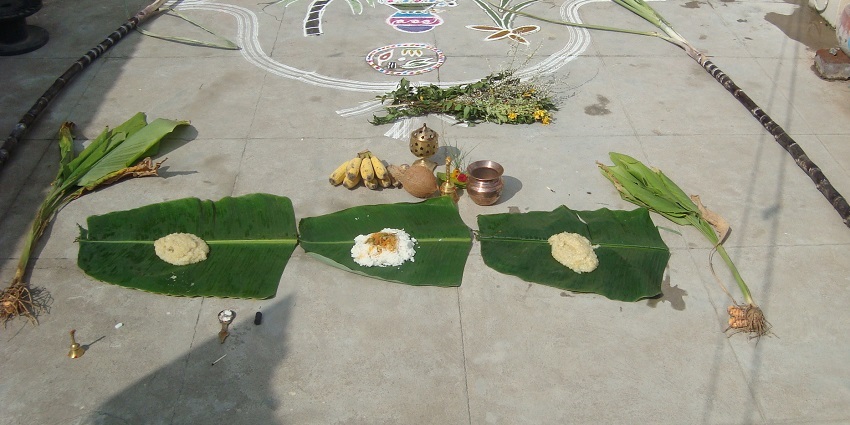
Photo: Arivumathi / Wikimedia Commons / Image For Representation Only
Thai Pongal is a significant Hindu festival celebrated on the first day of the Tamil month of Thai. A day of thanksgiving to the Sun God for providing energy and strength for paddy cultivation. Rice is a staple food in many parts of the world, including Sri Lanka. The festival is known by different names in Indian states, including Makar Sankranti, Uttarayan, Maghi, Sankranthi, or Pough. The festival involves farmers making two varieties of Pongal rice, one non-sweet and one sweet, and offering them to the Sun God.
Month: January
Suggested Read: Discover The Majestic Temples In Sri Lanka
2. Navam Perahera
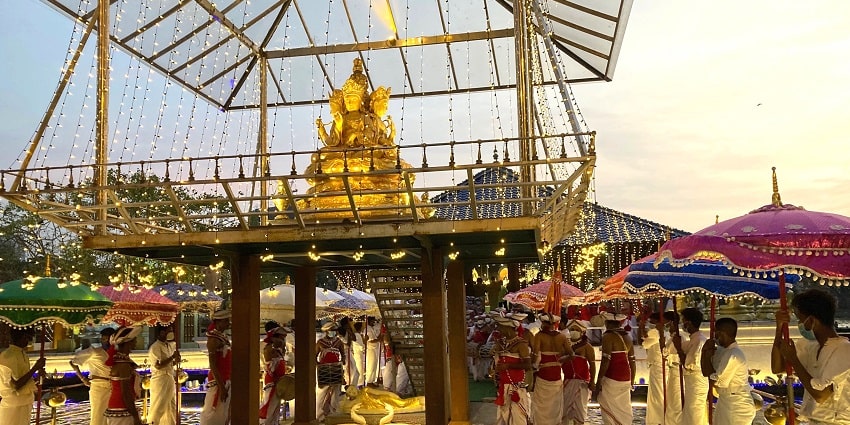
Photo: JanManu / Wikimedia Commons / Image For Representation Only
The Sri Lanka Navam Perahera is an annual pageant held in Colombo, Sri Lanka, usually on the Navam Full Moon Poya. The event, which began in 1979, aims to lift people’s spirits and promote arts and crafts. The Gangaramaya Temple is situated around the “traditional village and temple’’ which hosts vocational training projects for youth empowerment. The event also lights up the streets and this vibrant festival celebrates Buddhist heritage and tradition.
Month: February
3. Maha Shivaratri
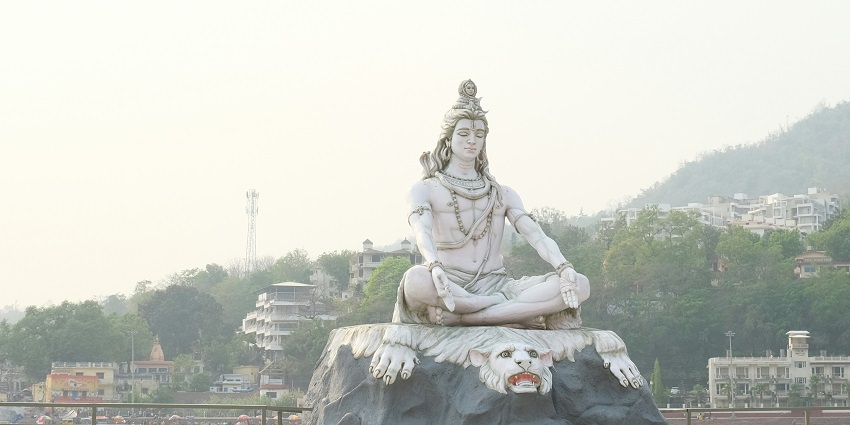
Photo: Rahul Mishra / Unsplash / Image For Representation Only
Maha Shivarathri is a Hindu festival celebrated on the 13th night of the Maagha month, honouring the supreme god Shiva. Devotees bathe in temples, bathe the Shiva Linga, and offer prayers to Vishnu and Shiva. The pooja includes offerings for longevity, wealth, knowledge, and worldly pleasures. The sound of bells and shouts of “Shankar Ji Ki Jai” (hail Shiva) are heard. The festival ends with a night-long vigil, chanting the sacred Panchakshari mantra “Om Namah Shivaya”.
Month: March
Suggested Read: Festivals In Sri Lanka You Cannot Miss Out On Experiencing
4. Sinhala And Tamil New Year
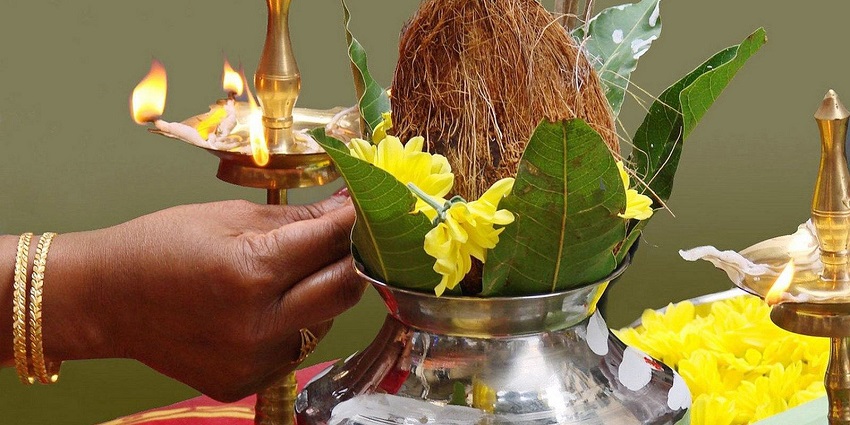
Photo: Amila Tennakoon / Wikimedia Commons / Image For Representation Only
Sri Lanka celebrates the Sinhala and Tamil New Years on April 13th and 14th, with a unique blend of rituals and customs. The festival, also known as the sun festival, honours the God of the Sun and is a must-see holiday on the island. The festival features firecrackers, fireworks, and traditional sweets, making it an excellent time to experience Sri Lanka’s core traditions and enjoy fun activities, and games. The Neutral period, or Nonagathe, begins on April 13th, allowing people to engage in religious activities.
Month: April
5. Vesak Poya Festival
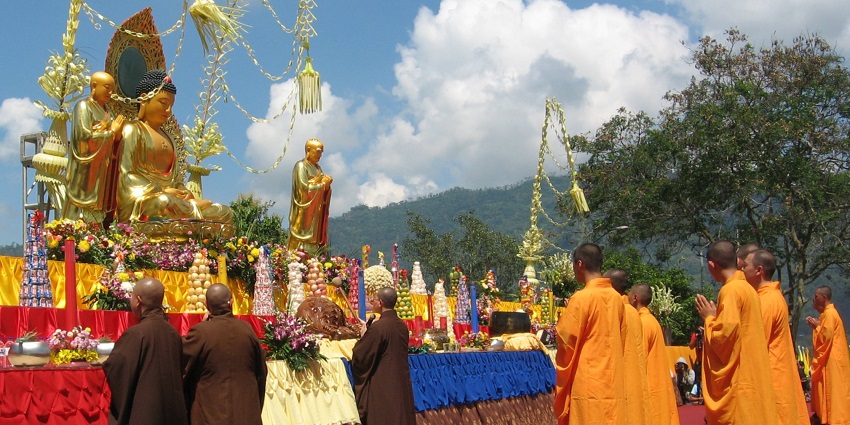
Photo: pwbaker / Wikimedia Commons / Image For Representation Only
The Sri Lanka Vesak Festival commemorates Lord Buddha’s Triple anniversary on Vesak Full Moon Poya Day in May. Toranas, powered by electricity, are erected in major cities, illustrating 550 past life stories. Colourful lanterns hang along streets, and Buddhist devotees provide free food and drinks called Dansalas. Vesak Day is celebrated globally by Buddhists worldwide for the birth, enlightenment, and death of Buddha Gautama, assimilated into various cultures and traditionally celebrated on Vaishakh Purnima day in India.
Month: May
Suggested Read: National Parks In Sri Lanka With Stunning Vistas, Biodiversity & Wildlife
6. Poson Full Moon Festival
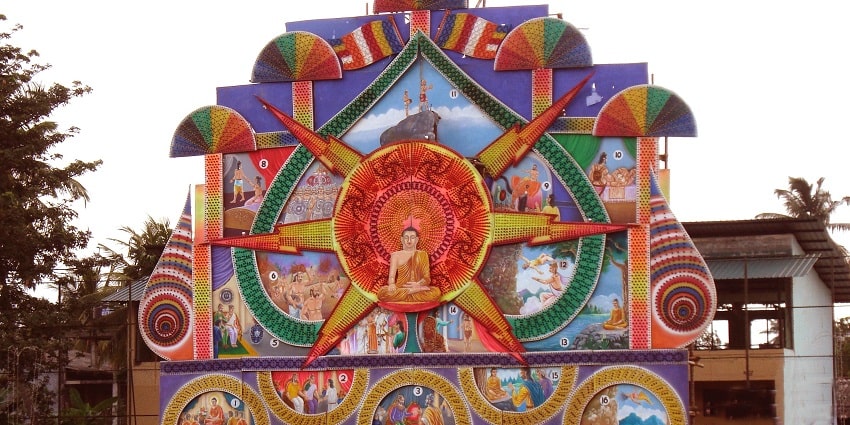
Photo: Hafiz Issadeen / Wikimedia Commons / Image For Representation Only
Poson is a Buddhist festival in Sri Lanka, commemorating the introduction of Buddhism by Mahinda Thero in 236 BC. The festival is centred around the Buddhist monastic complex on Mihintale and Buddhist sites in Anuradhapura, attracting thousands of pilgrims from across the island. The festival features electronically lit Pandols, dansals, lanterns, and lights, and lasts from 5 days to a week. Some parts of Sri Lanka prohibit meat and alcohol sales during the festival.
Month: June
7. Kataragama Festival
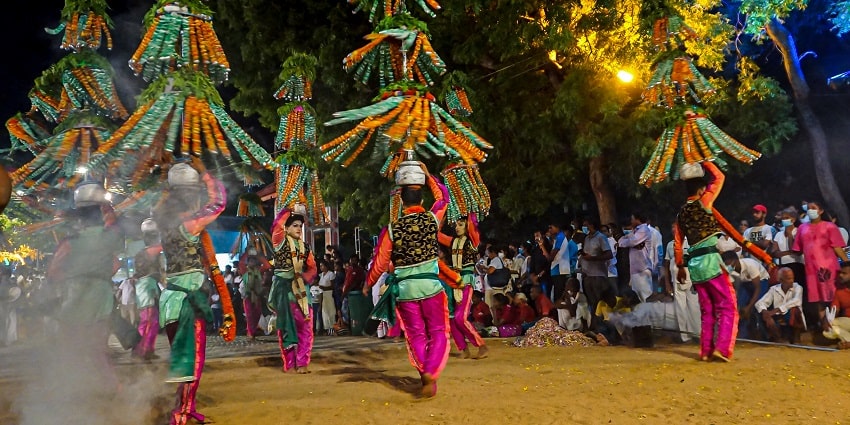
Photo: Iamironviper / Wikimedia Commons / Image For Representation Only
Kataragama is a sacred Hindu temple in India, known for its pujas and annual festival. Devotees gather to offer offerings and break coconuts, while a temple elephant performs rituals for the main shrine, dedicated to Skanda, son of Shiva. The festival is broken only during the annual Esala Poya festival, where devotees perform extraordinary acts of penance and self-mortification. Some perform the act of walking on beds of red-hot cinders, called “treading the flowers,” before facing their ordeal. The festival ends with a water-cutting ceremony in the Menik Ganga.
Month: July
Suggested Read: Top Music Festivals In Sri Lanka Where You Can Chase Melodies
8. Colombo Vel Festival
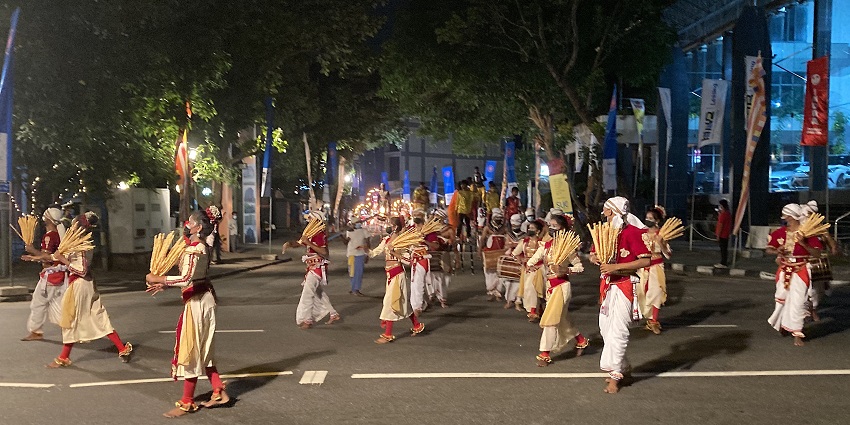
Photo: JanManu / Wikimedia Commons / Image For Representation Only
The 136 years of annual Aadi Vel Festival was celebrated in Colombo on July 23rd, 2010, with a colourful procession along the main streets of Colombo. This festival has been conducted without break for over 100 years, commencing after a 16-year break caused by a Cholera outbreak in Sri Lanka in 1874. The festival featured the idols of Lord Murugan and his wives, Valli Ammai and Theivayānai, and special Poojas were offered during the procession. The temple was decorated with yellow lights, banana leaves, and flower garlands, and devotees worshipped visiting deities.
Month: July
9. Kandy Esala Perahera (Festival Of The Tooth)
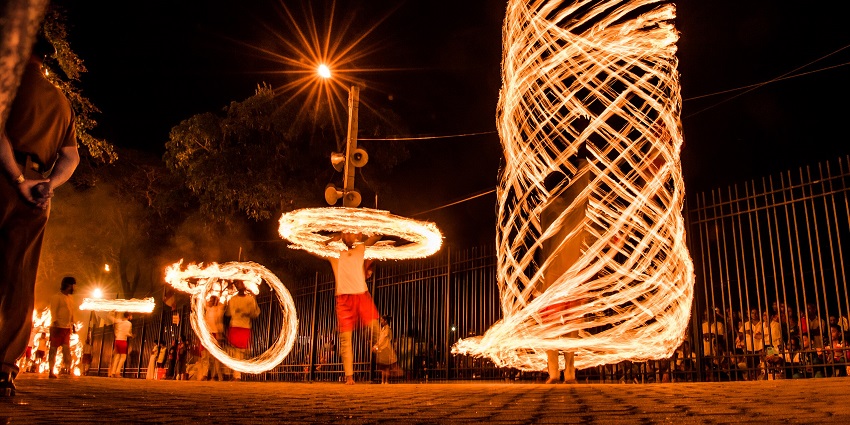
Photo: Sachin Kaveesha Fernando / Wikimedia Commons / Image For Representation Only
The major Sri Lankan festival is the Kandy Esala Perahera, conducted every July and August to pay homage to the Buddhist relic of the Sacred Tooth. The festival includes traditional local dances, fire dances, and whip-dance performances. The Esala Perahera, dating back to the 3rd century BC, is a ritual to request rain. The Dalada Perahera, which began with the Sacred Tooth Relic of Lord Buddha, dates back to the 4th century CE. The festival originated under the efforts of Upali Thera, who believed it was inappropriate in a Buddhist nation.
Month: August
Suggested Read: Best Places To Visit In Sri Lanka With Family
10. Nallur Kandaswamy Kovil Temple Festival
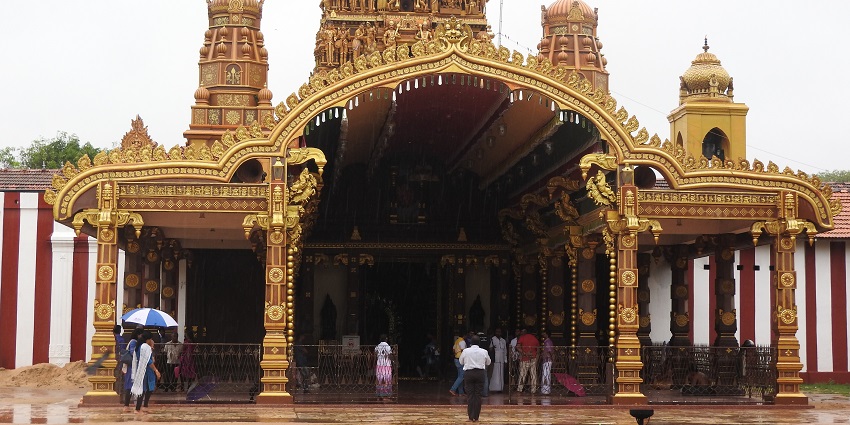
Photo: Yercaud-elango / Wikimedia Commons / Image For Representation Only
The Nallur Kandaswamy Kovil in Nallur, Jaffna, Sri Lanka, is a significant historical and religious site known for its vibrant religious and cultural activities. The Nallur Kandaswamy Kovil Temple Festival 2024 will begin on 8 August and end on 4 September. The festival has been organised by Nallur Temple Authorities and Jaffna Municipal, with streets closed from mid-August to mid-September for visitors’ unrestricted movement. To enter the temple, men must remove their tops and show respect to the god. Ladies should wear long dresses covering their legs and chest area, as breaking this can lead to sin.
Month: August-September
The festivals in Sri Lanka allow visitors to dip into the local fervour and extravaganza in addition to enjoying the natural wonders of the Islands. Sri Lanka’s festivals blend spirituality, cultural traditions, and communal celebrations, offering a unique insight into the nation’s rich tapestry. Be respectful of customs and dress appropriately for a joyous experience. Experience and embrace cultural diversity by taking part in these celebrations, and plan your trip today with TripXL.
Cover Photo: Siarhei Palishchuk / Unsplash / Image For Representation Only


 WhatsApp
WhatsApp
 Twitter
Twitter









